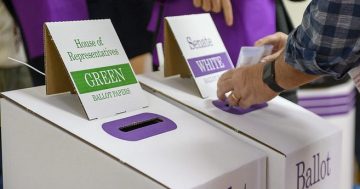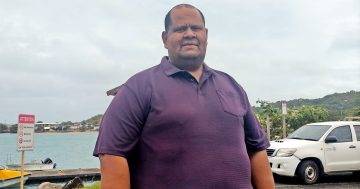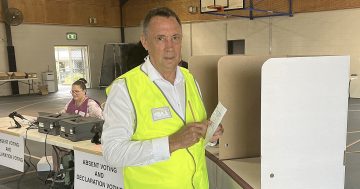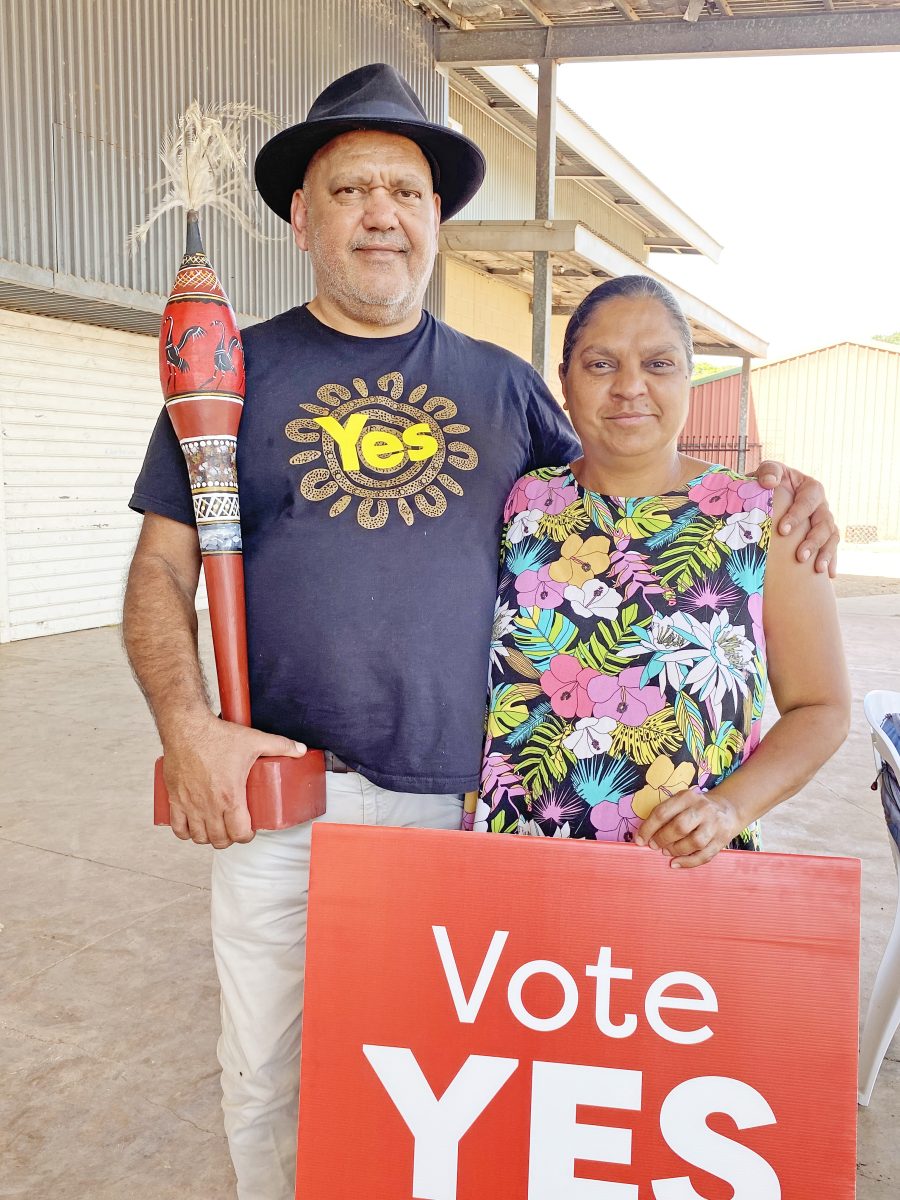
Aurukun mayor Keri Tamwoy welcomed Cape York Institute founder Noel Pearson on Monday to help drum up numbers for this week’s remote polling booths, and to help build momentum for the Yes vote.
VOTING on the referendum will begin tomorrow (Tuesday) in Cape York, however many local residents are unaware that remote polling booths will be visiting their communities.
For most, it will be their only chance to vote before the national referendum is held on October 14.
The Australian Electoral Commission has failed to advertise the upcoming remote polling booth visits in Cape York and the Torres Strait, leaving locals in the dark.
Instead, it was intending to run generic advertising, asking remote residents to go to its website to find out when the AEC was visiting.
Cape York Weekly intervened on the weekend and the AEC has since changed its stance, although it will be too late for many voters.
Criticism has also been directed at the AEC for its timing.
On Wednesday, for example, Laura residents will get just a three-hour window to cast their vote. It will be the only chance for locals to do so in person.
Cape York Institute founder Noel Pearson said it didn’t sit right with him.
“It’s taken 250 years to get a vote to be recognised and they’ve given just a few hours to do so,” he said ahead of his trip to Aurukun on Monday.
University of Queensland’s Dr Dani Linder, a Bundjalung, Kungarakany woman, said the AEC was undoing its work to lift the enrolment rate of Indigenous Australians.
“Simply just trying to get Aboriginal people across the country on the roll isn’t enough,” she told Cape York Weekly.
“You need to make sure they have access to polling booths and man those booths and assist constituents to cast their votes.
“This is exactly why we need a Voice.”
Dr Linder said many remote Indigenous Australians needed to travel long distances to get to a polling booth and they needed to be told about community visits in advance.
“It’s compulsory to vote in Australia and if you don’t you are subject to a fee,” she said.
“It can be a lengthy process to contest any fine and a lot of Aboriginal and Torres Strait Islander people don’t have the means to do so.
“What the AEC is inadvertently doing is further disenfranchising people by adding to the shopping list of expenses.”
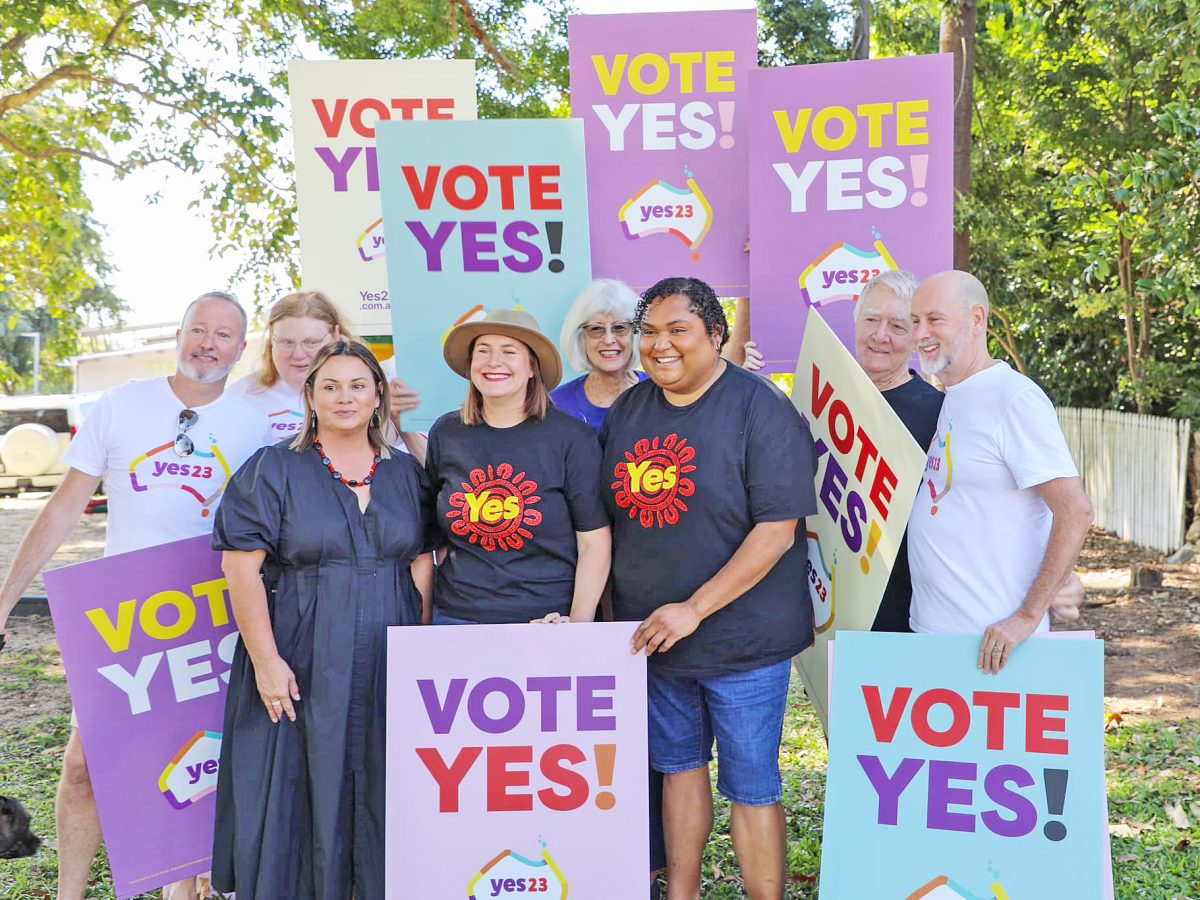
Senator Nita Green, centre, wants residents in remote Indigenous communities to have greater access to polling booths.
Cairns-based Senator Nita Green said she has been concerned with remote polling booths for some time.
“We’ve seen over many federal elections the issues with mobile voting,” she said.
“That’s why I made a submission to the Joint Committee to raise the issue of mobile voting.
“I hope that during this referendum nobody is prevented from voting, no matter how remote their community is.
“Access to voting is a key democratic principle and we should be doing everything in our power to make it easy.”
Senator Green said she was working with local communities on the ground to put up posters and make social media graphics to let people know when they could vote. The AEC has put up some of its own posters in communities, although some have said they are misleading.
“I thought it was saying that the voting team was coming to get enrolments and hire people to work on election day,” said Jenny from the Laura General Store.
“I didn’t know they were coming here to get our vote.”
An AEC spokesperson said on Sunday night that it would review the posters to make sure they were clearer to community members.
Mr Pearson, who made a special trip to Aurukun on Monday to help raise the profile of the upcoming referendum, said more needed to be done.
“I know it’s different in different places and the AEC has assured everyone they are doing their utmost to get people enrolled in the first place,” he said.
“However we need to make sure everyone can vote.”
The Hope Vale product has become the face of the Voice’s Yes campaign and urged those in the Cape to follow his lead when it was their turn to vote.
“This is a completely safe form of recognition,” he said on Sunday night.
“We are voting to recognise Aboriginal and Torres Strait Islanders as the first peoples of Australia.
“That is a factual statement.
“It doesn’t take away from those who came after us, or separate those who came after us.”
Mr Pearson said there were too many conspiracy theories spreading around, invented to disrupt the Yes campaign.
“Whatever you’ve heard on the internet, willingly or if you’ve been bombarded, is most likely not true,” he said.
“It’s a simple recognition of a historic fact that blackfellas were here before whitefellas.”


